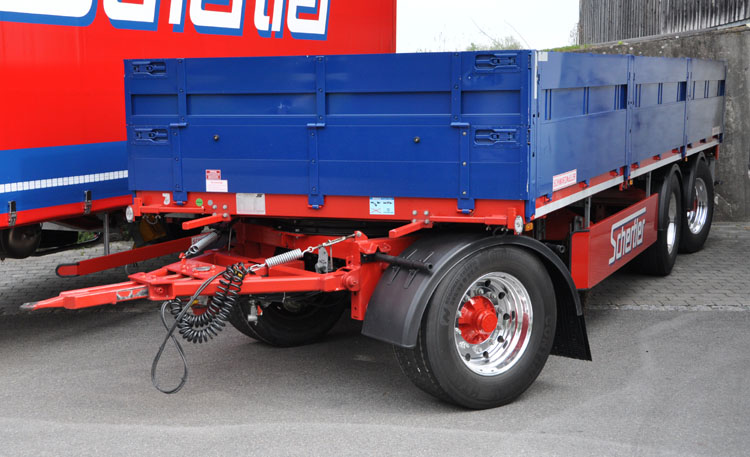Paddy Roxburgh":l0xxaju4 said:
oat and only had a small trailer that was narrower than the van. As anyone who knows about reversing trailers will be aware not being able to see the trailer makes it even harder to do. Now I had to do 50 odd runs to the skip and I could have driven forwards and then u turned with the trailer, but I decided to reverse every time. Initially I messed it up, but after enough practice I could do it. For the last 20 years I have had no problem reversing trailers and can confidently reverse any trailer into any space that is possible. Now this is a task I showed little/no aptitude for, I could have just gone "backing trailers isn't for me", but I was determined that I would master it and I did. Once I had done this I was every bit as good as someone who just "got it" first time.
Disclaimer; I am fully aware that backing a trailer is not the same as becoming a top flight academic.
I think for everyone who learns to back, that's it. It's sort of like riding a bike, and it requires "subtlety" from practice rather than outright thought or overanalysis.
There are a lot of things the same way in woodworking. They don't require microanalysis of everything, just experience and refinement. As tasky is talking about, understanding (perhaps its mortising or perhaps it's carving, whatever) the tension that someone has while they're working might be interesting, but it's a lot more instructive to desire a result (first in standards and then in time, or the reverse) and work to it than it is to stop in analysis paralysis and assume that lack of result is due to lack of information or ability to glean it from repetition. Nobody rides a bike and thinks.."listing 0.1% to the left, shift right leg 0.14 inches to the right to compensate", and we don't tell people how to ride a bike like that, either. Lots of the little details that we acquire aren't really that important to be able to verbalize, some don't verbalize well (thus, we have forums with 17 page posts arguing about whether or not we're going to be obligated to make victorian low-level piece rates if we want to learn to mortise faster).
But even further back from that, if someone is visibly doing something entirely different than you are and achieving better or faster results (or both), you might as well look at what they're doing and try it. Even if you can't figure it out.
Totally different than backing a trailer, where all you can tell someone is that with a trailer with a fixed axle will go the opposite direction of the one you're turning. Even then, it's more of a subconscious skill to learn - the bit of information that you can't expect the trailer to go in the direction that you're turning is pretty useful to start, but then you have to turn to practice, trying to duplicate what you see someone else do and reliance on something other than point by point analysis to learn to do something well.
I have a bad habit of anticipating how something will turn out. For years, I didn't use the double iron because I anticipated that it would be similar to other setups, and confirmed it by trying it a few times, back to 2006 or so before anyone other than a single person talked about it. I have a personal two week rule now - when I think I'm making no progress at something after a session or two, I force myself to do it for two weeks, anyway - and then see how it turns out. In a pre-video environment (before that japanese video came out), I banned myself from using scrapers, sandpaper or high angle planes to learn to use the double iron - for a month (not two weeks), but it only took a week to get far better at it than I was using the very good single iron planes I had. I wanted a result and figured that repetition might teach me things that are more subtle and less perfect to verbalize into a paint by number list.
I get emails and video comments from time to time about the double iron and about half of them are "i tried it and it didn't work for me". I always respond that people should try it for two weeks instead, have a result they'd like to see and suspend all judgement other than that in the interim. I never hear back from them, and assume that they either got out sandpapers, scrapers/scraping planes or their favorite high angle plane and gave up.
A whole lot of woodworking is that way - tolerate the period where you don't know everything and aren't getting the results you want rather than settling for overly safe and slow. Suspend conclusion of failure for a while and don't allow yourself to think it and only allow it later if you go through a period of "subtlety by trial" and find your results the same at the end of it.

































